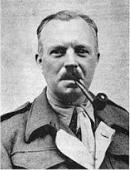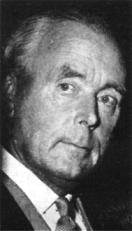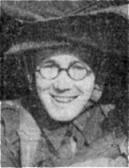This Page is still under construction
| Surname | Forename/s | Rank | Number | Company | Notes |
| Parkes | John | Lieut.-Col. | C.O. | ||
| Goldie | Richard Marie Joachim | Major | 15396 | 2 i/c. | King's Own Royal Regt. |
| Boyt | John Sherren | Major | 31784 | A | Killed later in Burma 20/3/45 |
| Woodward | R. R. | 2/Lieut. | 79046 | I.O. | |
| Vale | T. G. | Major | 39724 | ||
| Anderson | George S. | Capt. | 92657 | Mortar Platoon | Wounded at La Bassee |
| Dykes | David Basil W. | Capt. | |||
| Hingley | Gerald Bertram | A/Capt. | 73423 | A 2i/c | Killed at Tournai 20/05/1940 |
| Tomkinson | John Whitaker | Capt. | 52824 | D | |
| Byrd | Percy | Capt. | 36148 | Wounded. | |
| Tooby | Edward Reed Ward | Capt. | 64486 | ||
| Viney | H. T. | Capt. | 38071 | ||
| Seabrook | Thomas John W. | A/Capt. | Acting Adjutant | Wounded 28/05/1940 Taken prisoner. | |
| Monahan | Patrick Charles Watson | 2/Lieut. | 90035 | A | Killed 26/05/1940 |
| Ibbetson | Samuel Frank | 2/Lieut. | 105535 | A | Killed 26/05/1940 |
| Betts | John Francis | Lieut. | 79030 | C | Wounded 26/05/1940 Taken prisoner. |
| Coventry | George William Reginald Victor | Lieut. | 7903 | Killed 27/05/1940 | |
| Chesshire | George Pountney P. | Lieut. | 92383 | Signals | Signals Officer |
| Evers | Ralph H. K. | Lieut. | 72287 | ||
| Pilcher | Richard Kenneth | Lieut. | 100999 | M.O. | Wounded 21/05/1940. |
| Watson | R. S. H. "Sandy" | Lieut. | 89629 | D | |
| Whitaker | Charles M. A. | Lieut. | 73428 | D | Taken prisoner. |
| Goodwin | David George | 2/Lieut. | 88624 | Killed 26/05/1940 | |
| Goodwin | Ronald Clifford Thomas | 2/Lieut. | 47456 | D | 16 Platoon commander |
| Green | Simon M. | 2/Lieut. | 90023 | Anti-Tank Platoon | Wounded 28/05/1940 Taken prisoner. |
| Rowlatt | Denis Frederick Napier | 109083 | |||
| Lunt | Donald Howard | 2/Lieut | Wounded 22/05/1940. | ||
| Tomkinson | Kenneth Ronald G. | Lieut. | 95425 |

Capt. T. J. W. Seabrook
Tom Seabrook born on the 21st May 1901, Walsall. He joined the Regiment very soon after the First World War for he was already a Sergeant, Officers' Mess Sergeant, of 1st Battalion The Worcestershire Regiment in Meerut, India in 1924 and 1925.
In the early 1930s, he was Company Sergeant-Major of 'C' Company, 2nd Bn. The Worcestershire Regiment in Malta.
Prior to the outbreak of the Second World War, he was for a time, R.S.M. of 7th Battalion The Worcestershire Regiment (T.A.), at The Shrubbery, Kidderminster. He was commissioned on the outbreak of war and went to France as Intelligence Officer of the 7th Battalion. When the 7th Battalion advanced to the Dyle, he was Acting Adjutant.
He was in action at La Bassee Canal and whilst carrying out a reconnaissance, his party was attacked by enemy tanks, and Tom was severely wounded and taken prisoner. As a result of his wounds, he lost an arm and was repatriated to England under the Geneva Convention.
Immediately after the war he was appointed Adjutant to Lieut.-Colonel C. V. W. Court, Commanding the Holding Battalion at Ross-on-Wye.
Later he was for a short time a Yeoman Warder at the Tower of London.
He was a dedicated Freemason and was for years, a prominent supporter of the Regimental "Glittering Star" Lodge.
He was an honorary representative of The Worcestershire Regiments' Association for many years, and he worked tirelessly for the British Limbless Ex-Servicemen's Association in the Midlands.
After his retirement he kept closely in touch with Regimental Headquarters, and he was a most valuable source of information on all kinds of Regimental matters, and he attended as many Association functions as he could with the utmost regularity.
Captain Tom Seabrook died on the 21st May 1975, at Walsall General Hospital, after a short illness, aged 75 years.

Capt. G. S. Anderson
George Anderson joined the 7th Battalion of The Regiment in 1939. He was mobilized on the outbreak of war as Battalion Mortar Officer.
He went to France, with the 7th Battalion, in January 1940. In May 1940, he took part in the advance into Belgium and the subsequent withdrawal of the B.E.F. to Dunkirk. He was badly wounded during the withdrawal at La Bassee, and was evacuated to U.K. from Dunkirk. On recovering from his wounds he was posted to the War Office as G.S.O.2 on the "D-Day" Planning Staff.
Before the war he had lived in Malaya, as a result of which he was offered a post with the Far East Planning Staff, and promotion. But he declined this offer to take up a business appointment in England. This appointment was with Brinton's Limited, Kidderminster, the well-known firm of carpet manufacturers, with which firm George Anderson quickly rose to the position of Company Secretary and a Director.
He was also the very much respected and popular Chairman of the Three Choirs Festival Committee, towards the success of which he put in a tremendous amount of tireless enthusiasm and work, a member of the Birmingham Regional Hospital Board and a former Chairman of the Mid-Worcestershire Hospital Management Committee.
Major George Anderson died at his home, The White Lodge, Bevere, near Worcester, on the 3rd April 1966, at the age of 61 years. After returning from a business trip to Australia and New Zealand. He was attending to a water leak at his home on the evening of Sunday, 3rd April 1966, when he slipped, clutched a wet electric fitting to break his fall, and received a fatal electric shock.

Capt. D. B. Dykes
Born in Worcestershire on the 5th November 1911. Educated at Clifton College where he was a Cadet Serjeant.
He was commissioned in the the 7th Battalion Worcestershire Regiment on the 18th April 1936, with the rank of 2nd Lieutenant. He was promoted to the rank of Lieutenant on the 1st July 1939. He went to France, with the 7th Battalion, in January 1940. In May 1940, he took part in the advance into Belgium and the subsequent withdrawal of the B.E.F. to Dunkirk. He later reached the rank of Major.
In the 1950's he was Clerk to the Ledbury Urban District Council. In the 1970 he was the Superintendent Registrar at Ledbury.
Died 15th August 1992 at Hanley Swan, Worcester, age 80.